Lifestyle
Top 15 Processed Foods Potentially Banned by RFK Jr.’s New Health Reforms
By CM Chaney · July 14, 2025

For years, processed foods have been a staple of convenience and indulgence, but their long lists of unpronounceable ingredients have sparked concern among health experts. High levels of artificial flavors, colors, and preservatives frequently found in these foods are believed to contribute to various health issues. RFK Jr.'s potential policies hope to address these concerns by phasing out additives associated with negative health effects, thereby encouraging the consumption of cleaner, less-processed foods.
The proposed reforms could particularly impact products beloved for their convenience and taste. By enforcing stricter guidelines and prioritizing the removal of harmful substances, these reforms may redefine what constitutes a "healthy choice" across grocery aisles. Both manufacturers and consumers would need to adapt to this evolved food landscape, driving innovation in the food industry and reshaping dietary habits. In light of these potential developments, we explore 15 processed foods that could be most affected by these changes. © Jack Gruber / USA TODAY NETWORK via Imagn Images
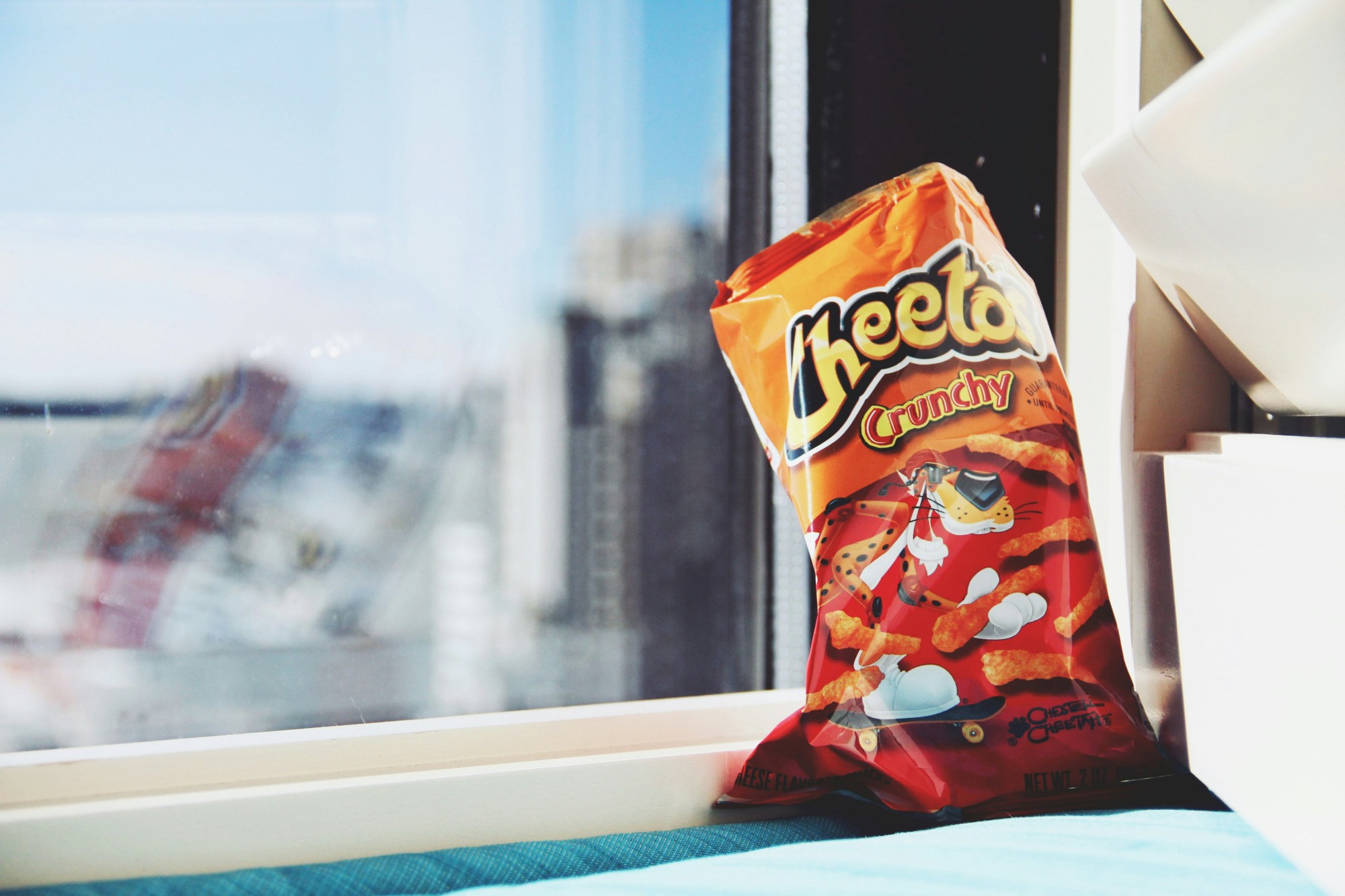
1. Artificially Flavored Snacks
Snack foods are a ubiquitous part of many diets, often loved for their bold flavors generated by artificial additives. Brands like Doritos and Cheetos, which rely heavily on synthetic flavor enhancers, could be at risk under stricter health guidelines. These additives, including monosodium glutamate (MSG) and other flavoring agents, are scrutinized for their potential health impacts. If RFK Jr.'s policies come into play, products with high levels of these substances may need to reformulate to maintain their market presence. The reforms would encourage snack manufacturers to explore natural flavoring alternatives, a transition that could appeal to a growing segment of health-conscious consumers. However, this shift might pose challenges in maintaining the familiar taste profiles that have made these snacks household favorites, offering an exciting frontier for innovation in the snack industry. Photo by Giorgio Trovato on Unsplash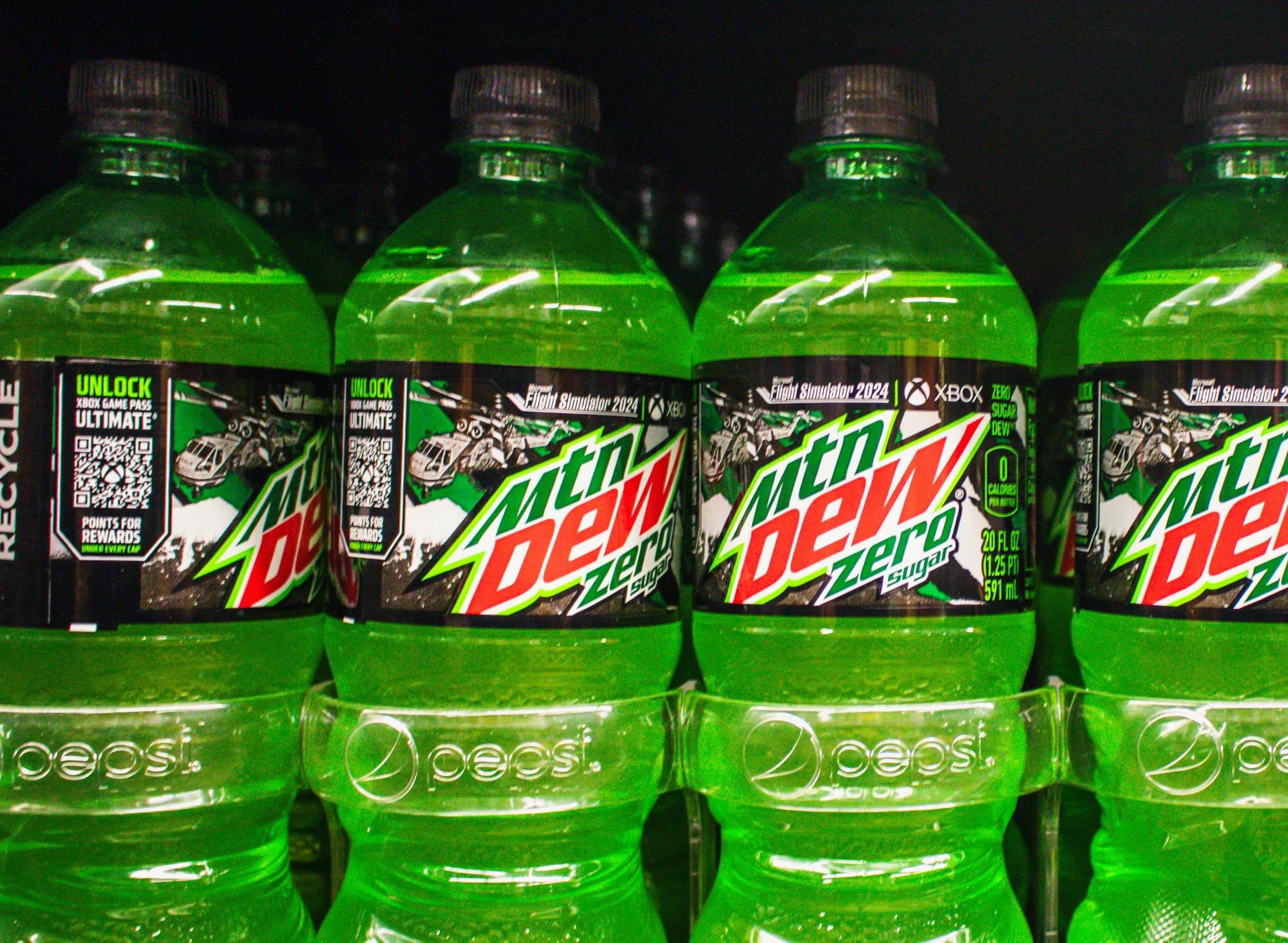
2. Soft Drinks with Synthetic Colors
The vibrant hues of soft drinks, such as Coca-Cola Cherry and Mountain Dew, often derive from synthetic dyes that might face bans under RFK Jr.'s health reforms. These colorful beverages, laden with additives like Red 40 and Yellow 5, have been linked to health concerns, prompting calls for cleaner labels. New policies could urge manufacturers to eliminate these dyes, pushing them towards natural color alternatives. The potential reforms would not only impact the visual appeal of these beverages but also challenge companies to preserve their iconic looks without compromising brand recognition. As consumer preferences shift towards more transparent ingredient lists, the beverage industry may see a trend towards clearer, more natural formulations. This change aligns with a broader movement toward health-focused product offerings, allowing companies to align with consumer demands for safer, purer drink options. Photo by Zoshua Colah on Unsplash
3. Ready-to-Eat Breakfast Cereals
Breakfast cereals like Froot Loops and Lucky Charms, known for their sugary allure and colorful appearance, could face significant changes under new health reforms. These cereals often contain artificial colors and high sugar levels, elements targeted by RFK Jr.'s proposed policies. The call for cleaner, healthier breakfast options may lead to the reformulation of these products, reducing sugar and replacing synthetic dyes with natural alternatives. Health enthusiasts argue that these changes promote better dietary habits among children and adults alike, potentially reducing the risk of sugar-related health issues. As brands adapt to these guidelines, the cereal aisle may start featuring reformulated classics that meet new health standards while striving to maintain their beloved taste. This transition not only addresses health concerns but also presents opportunities for innovation in crafting cereals that satisfy both traditional palates and modern nutritional expectations. Photo by Etienne Girardet on Unsplash
4. Pre-Packaged Desserts
Beloved dessert brands like Hostess Twinkies and Little Debbie's cakes are known for their long shelf lives, courtesy of preservatives and artificial ingredients. These sugary delights, popular for their convenience, might face reformulation under stricter health policies that aim to minimize synthetic additives. Beyond extending shelf life, these additives raise health concerns that align with RFK Jr.'s objectives for a healthier food environment. Reforming the ingredient list might lead brands to explore natural preservation methods and reduced sugar options, which could appeal to health-conscious consumers. While this transition challenges manufacturers to maintain texture and taste without traditional preservatives, it may also revitalize the dessert market by encouraging cleaner, more transparent dessert offerings. Brands embracing these changes can position themselves as pioneers in a health-focused dessert revolution, satisfying indulgence cravings in a healthier and more sustainable way. Chris/Wikimedia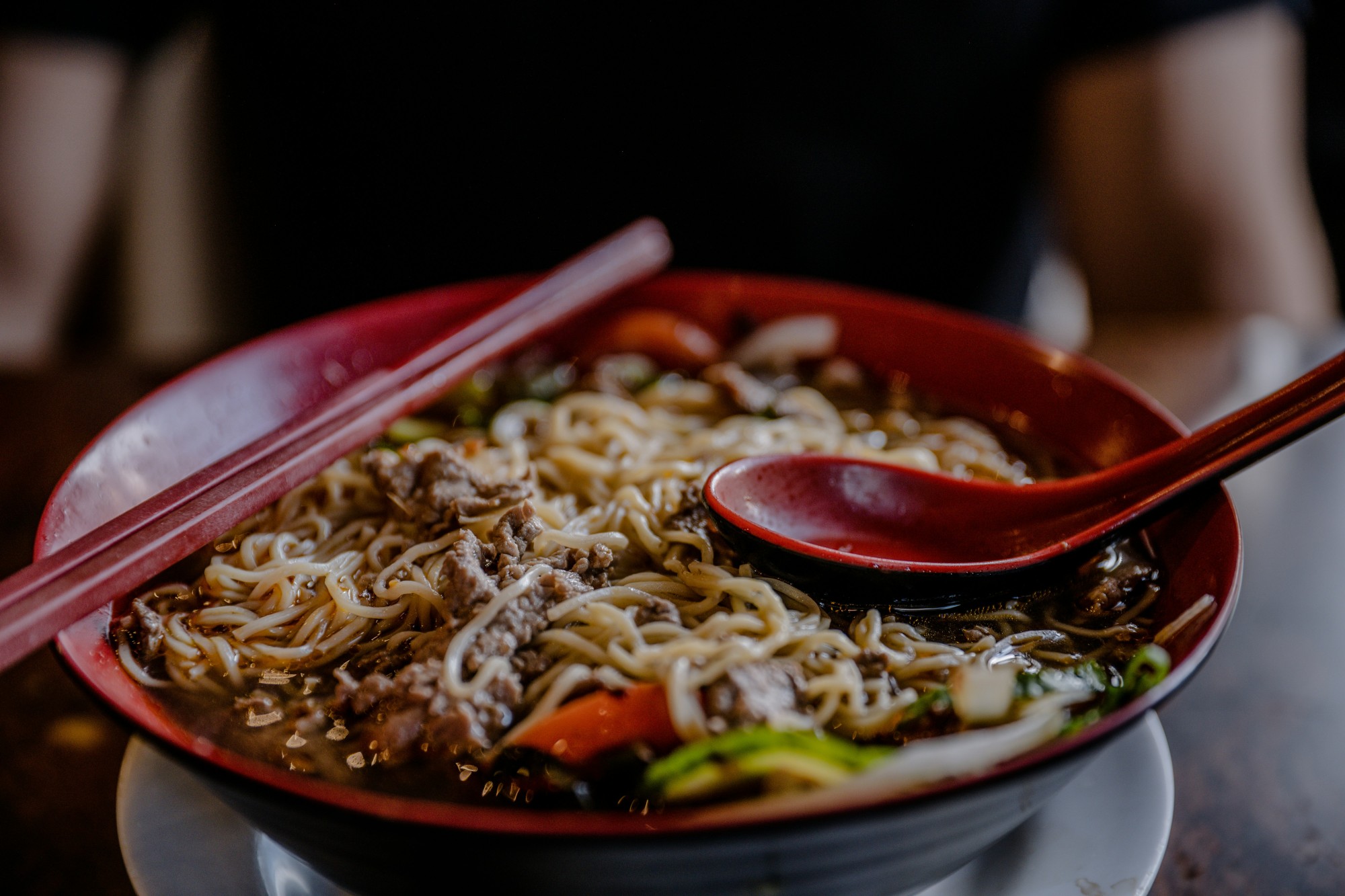
5. Instant Noodles
Instant noodles, a go-to meal for many due to their convenience, are often scrutinized for their high sodium content and presence of MSG. Brands like Top Ramen and Maruchan might need to reconsider their recipes if RFK Jr.'s health reforms come into effect. These noodles typically rely on preservatives and flavor enhancers to maintain their flavor and shelf life. The potential policies could push brands to reduce sodium levels and explore natural flavoring alternatives, aligning with growing public health concerns over processed foods' contributions to dietary ailments. As consumers increasingly seek healthier lifestyles, instant noodle brands have an opportunity to innovate by offering products with reduced additives, appealing to a broader audience. This shift not only represents a move towards healthier living but also encourages manufacturers to creatively balance taste, convenience, and nutrition in crafting next-generation noodle offerings. Photo by GoodEats YQR on Unsplash
6. Processed Meats
Processed meats, such as Oscar Mayer hot dogs and Hillshire Farms sausages, often contain nitrates and nitrites, which are controversial due to potential health risks. These preservatives, used to enhance flavor and color while extending shelf life, could be reevaluated under RFK Jr.'s proposed health policies. With an increasing focus on natural, nitrate-free foods, these products may need reformulation to align with health-conscious consumer preferences. Brands might explore alternative preservation methods or natural nitrate sources, which could lead to more transparent labeling. Ensuring safety while maintaining flavor and texture will be key challenges, sparking innovation within the processed meat industry. As the market shifts towards healthier options, brands embracing these changes can differentiate themselves by offering products that resonate with a growing demand for minimally processed, health-focused food choices, satisfying both traditional tastes and modern dietary standards. Cory Doctorow/Wikimedia
7. Microwaveable Dinners
Convenience meals, such as Stouffer's lasagnas and Hungry-Man dinners, are staples in quick meal solutions but often come heavily processed. These products typically use preservatives and artificial ingredients to maintain freshness and taste, aligning with consumer demand for easy, tasty meals. RFK Jr.'s proposed policies could challenge this sector to prioritize cleaner labels by reducing synthetic additives. This shift would necessitate reformulating recipes to utilize natural preservatives or potentially adopting fresh, minimally processed ingredients. As health trends steer towards clear labeling and ingredient transparency, manufacturers may face challenges in balancing convenience, cost, and quality. The evolving market presents an opportunity for brands to innovate, offering health-conscious consumers microwaveable options that retain flavor and quality without compromising on health standards. Success in this endeavor could position brands as leaders in revolutionizing quick meal solutions, meeting modern demands for healthy, convenient choices. Thomson200/Wikimedia
8. Packaged Bread
Mass-market bread brands like Wonder and Sara Lee utilize stabilizers and preservatives to ensure product longevity and freshness. Under RFK Jr.'s health reforms, these additives might face scrutiny, encouraging a shift towards more natural ingredients. Consumers increasingly seek transparency and nutritious options, driving demand for breads made without artificial additives. This potential ban invites bakery brands to innovate by exploring traditional preservation methods or incorporating natural ingredients like sourdough culture, which doesn't require chemical additives. Adapting to these changes could enhance brand loyalty among health-conscious consumers, who favor products aligned with their dietary values. As brands navigate regulatory shifts, they also have the opportunity to lead in crafting delicious breads that offer both integrity and taste, ultimately redefining what consumers expect from their daily bread supplies, aligned with the growing ethos of natural, healthy eating. Photo by Hermes Rivera on Unsplash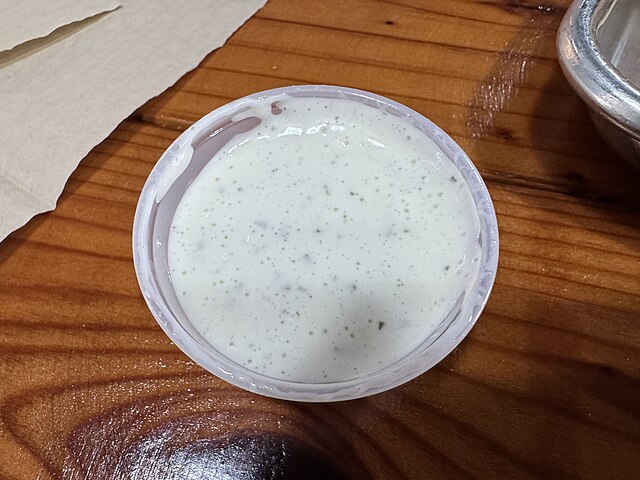
9. Bottled Dressings and Sauces
Bottled dressings and sauces, such as Hidden Valley Ranch and Kraft's Thousand Island, use a variety of gums and artificial thickeners to achieve their creamy consistency and prolonged shelf life. RFK Jr.'s proposed reforms could mean reconsidering these ingredients, advocating for healthier, cleaner alternatives. The challenge lies in maintaining rich flavors and desirable textures without relying on synthetic additives, offering an opportunity for brands to innovate in formulation. As consumers demand more transparency and healthier options, brands that successfully transition to natural thickeners or preservation methods can capitalize on shifting consumer preferences. This move aligns with broader health trends prioritizing simple, kitchen-friendly ingredients, encouraging companies to highlight the quality and integrity of their products. Leading by example, brands can not only inspire consumer trust but also set new standards in the sauce and dressing industry for healthier, tastier products. Missvain/Wikimedia
10. Energy and Protein Bars
Energy and protein bars, with recognizable brands like Clif Bar and PowerBar, offer convenient nutrition but often include artificial sweeteners and preservatives. With RFK Jr.'s reforms emphasizing natural ingredients, these products might need to adjust their formulations. Health-conscious consumers increasingly gravitate towards bars with simple, recognizable ingredients, prompting a shift away from synthetic additives. By adopting natural sweeteners, like honey or fruit-derived sugars, and alternative preservation methods, brands can maintain energy and protein content while aligning with consumer expectations. Innovation in this space is key to catering to diverse dietary needs, from boosting energy for athletes to providing healthy snack options on the go. By positioning themselves at the forefront of health-focused snacking, brands can reinforce their commitment to quality, transparency, and nutrition, securing a competitive edge in a market where ingredient purity and health benefits drive purchasing decisions. Mx. Granger/Wikimedia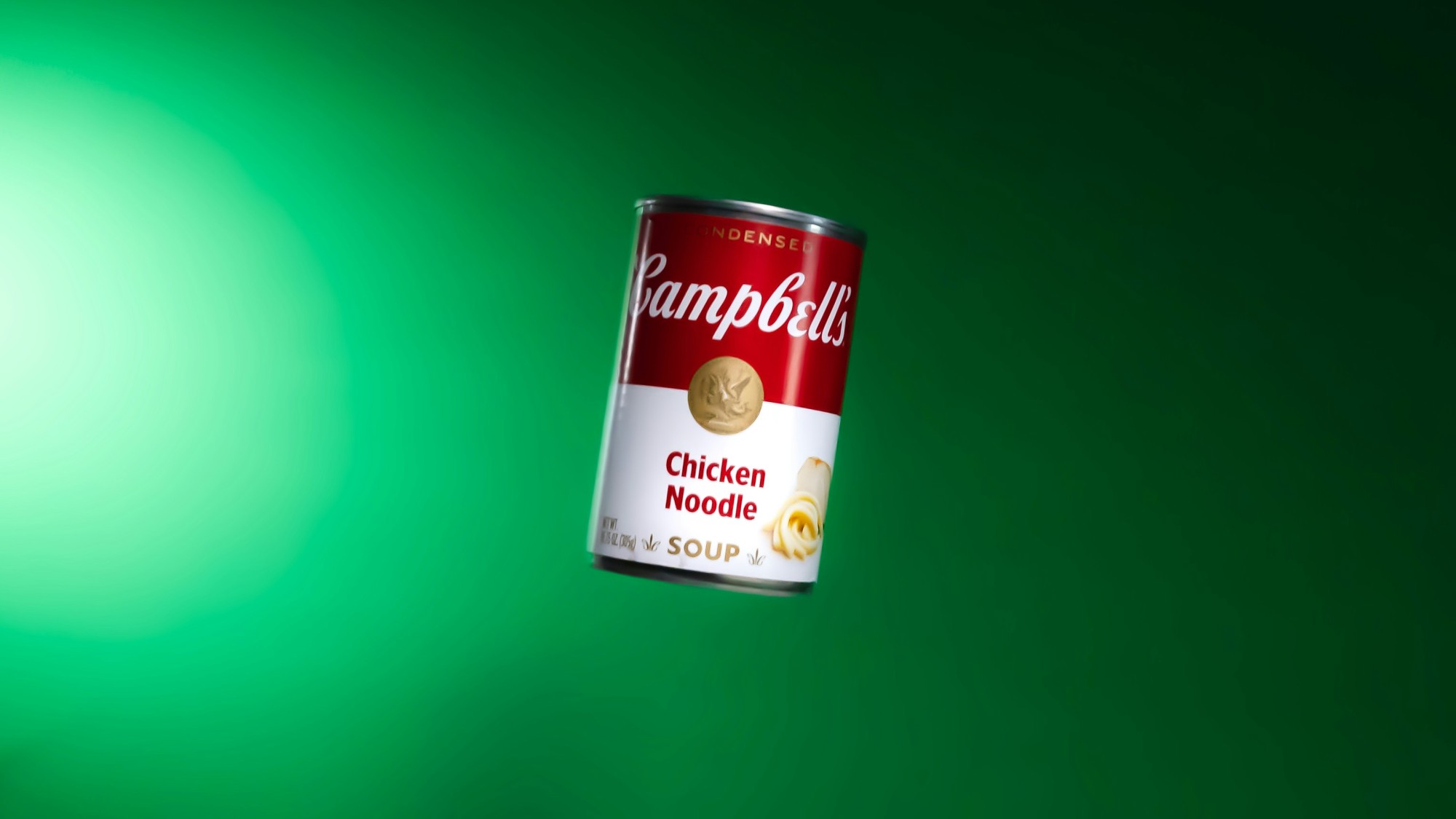
11. Canned Soups and Vegetables
Canned products, such as Campbell's soup and Del Monte vegetables, often rely on added salts and preservatives for flavor and extended shelf life. These ingredients, however, may face restrictions under RFK Jr.'s proposed health reforms, which advocate for more natural, less-processed foods. As consumers increasingly prioritize sodium reduction and dietary transparency, brands face the challenge of maintaining quality and taste without traditional additives. This shift could involve developing innovative preservation techniques, like pressure-cooking or aseptic packaging, alongside enhancing natural flavors with herbs and spices. Successfully navigating these changes presents an opportunity for brands to resonate with health-conscious consumers seeking nutritious, pantry-friendly options. By leading with transparency and a commitment to health, brands can redefine convenience in canned goods, offering wholesome, delectable choices that cater to modern dietary preferences while upholding long-standing culinary traditions. Photo by Ben Lolli on Unsplash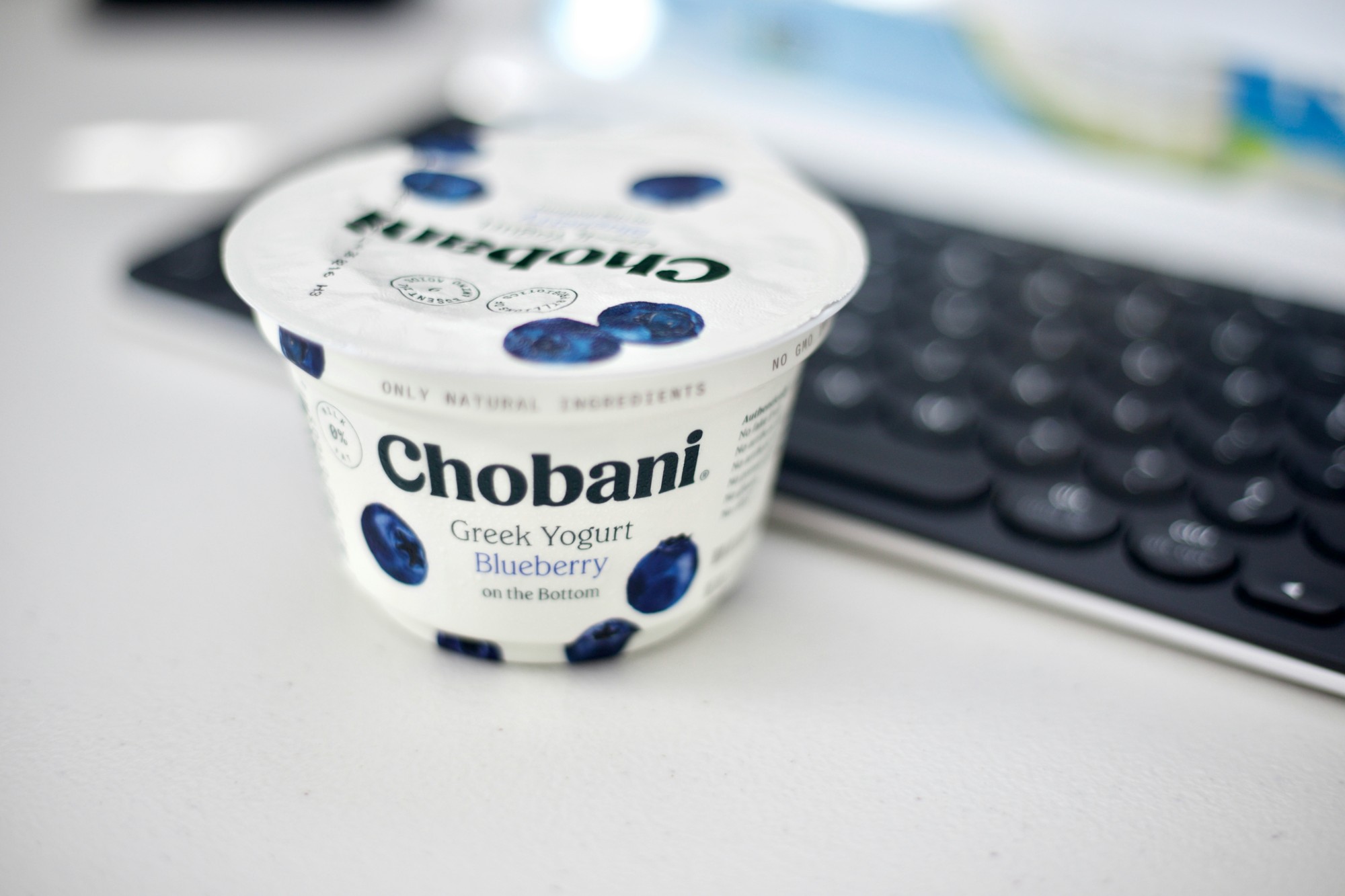
12. Flavored Yogurts
Flavored yogurts, with notable offerings from Yoplait and Dannon, are popular for their taste and convenience but often contain added sugars and artificial flavorings. RFK Jr.'s health reforms could target these ingredients, advocating for cleaner, healthier dairy options. The proposed changes push brands to focus on natural flavors and reduction in added sugars while maintaining the creamy texture and taste consumers love. Switching to real fruit ingredients and using minimal processing aligns with growing consumer demands for transparency and nutritional integrity. This shift not only addresses health concerns but presents an opportunity for brands to innovate, enhancing product lines with wholesome, naturally flavored options that still offer the indulgence and convenience of classic yogurts. By prioritizing health without sacrificing taste, brands can strengthen their position in the competitive dairy market, appealing to a consumer base that increasingly values authenticity and healthfulness. Photo by Jainath Ponnala on Unsplash
13. Frozen French Fries
Frozen French fries from brands like Ore-Ida and McCain are a staple in homes worldwide, prized for their convenience and flavor, often achieved through stabilizers and preservatives. However, RFK Jr.'s proposed policies focusing on natural ingredients might necessitate changes in how these products are prepared and preserved. Reformulating recipes to eliminate chemical additives while maintaining texture and crispness presents both a challenge and an opportunity for innovation. By exploring natural preservation techniques or developing innovative coatings that replace synthetic stabilizers, brands can align with consumers desire for transparency and health-conscious options. This transformation in the frozen fries market signifies a broader movement towards healthier eating habits, encouraging brands to lead with integrity and culinary excellence while reinforcing the importance of simple, natural ingredients that love and care for consumer health. Photo by PRATEEK JAISWAL on Unsplash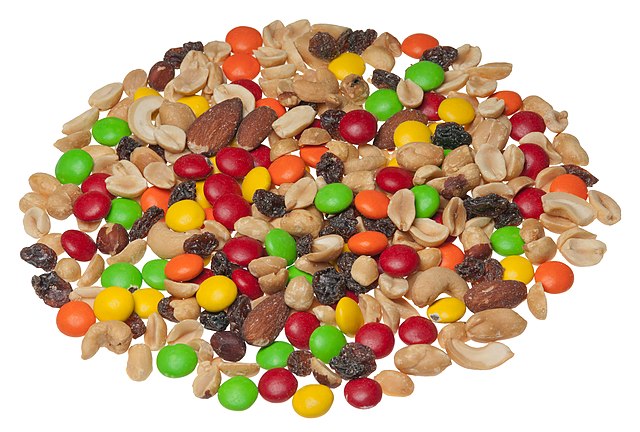
14. Granola and Trail Mixes
Once hailed as health foods, brands like Nature Valley and Planters' trail mixes often contain added sugars and preservatives, which could come under scrutiny with RFK Jr.'s new health policies. These products, intended as nutritious snacks, must adapt to align with evolving consumer expectations for transparency and wholesomeness. Reducing sugars and eliminating artificial additives can transform granola and trail mixes into genuinely healthy options, leveraging real nutrition without compromising on taste. The focus would shift towards incorporating wholesome ingredients like nuts, seeds, and dried fruits without unnecessary sweeteners. This innovation in snack production addresses the increasing demand for cleaner, nutrient-dense snacking choices. Brands championing this change reinforce their commitment to health and well-being, catering to a discerning market that prioritizes authentic, delicious, and nutrient-rich snacks that nourish both body and spirit. Evan-Amos/Wikimedia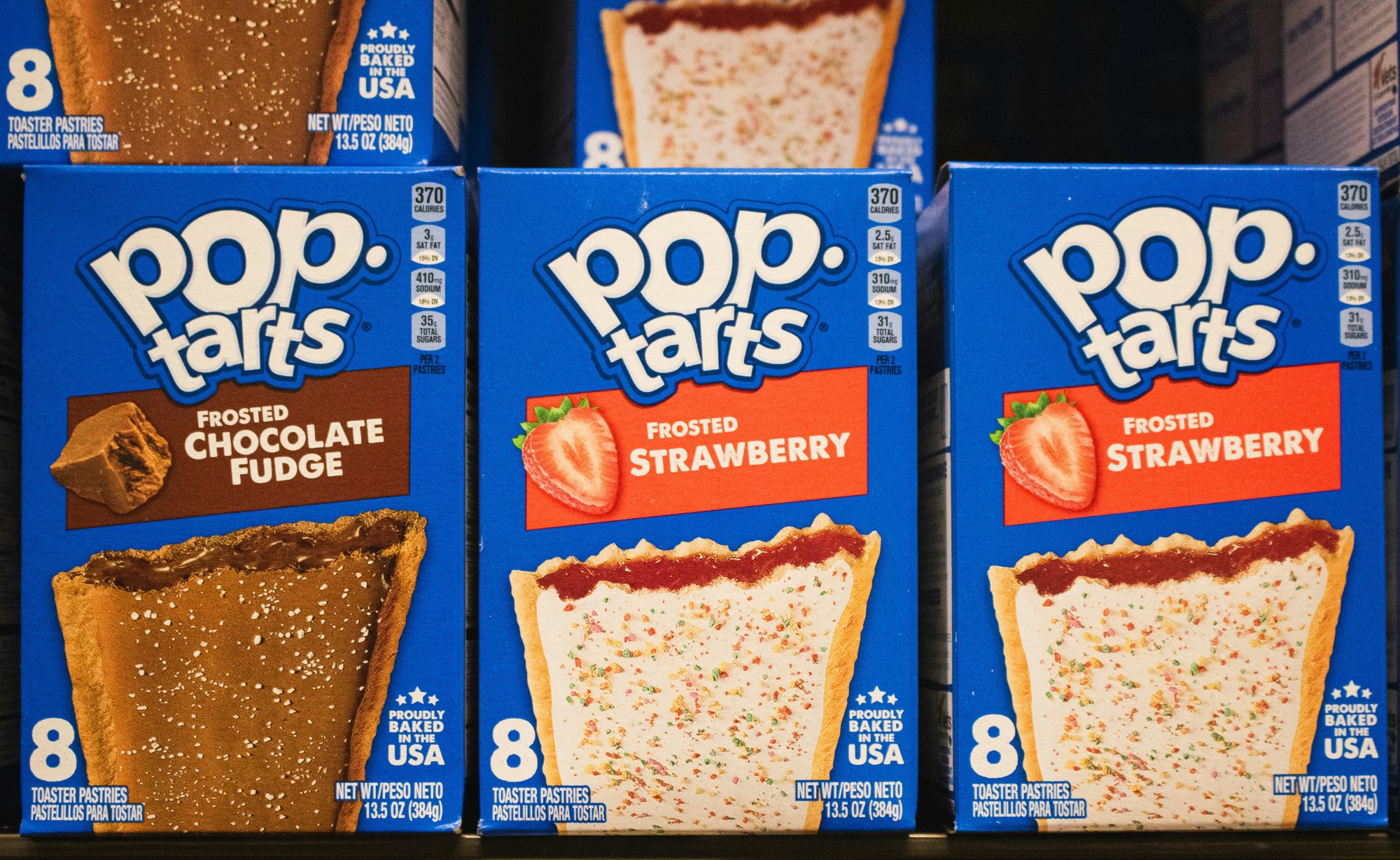
15. Breakfast Pastries
The convenience of breakfast pastries, from brands like Pop-Tarts and Pillsbury, makes them a household favorite, yet they often contain trans fats, artificial flavors, and preservatives. RFK Jr.'s health reforms could challenge the industry to address these dietary concerns through healthier formulations. By reducing harmful fats and using natural flavoring and coloring, these products can meet regulatory guidelines while still offering the indulgence consumers crave. Transitioning to whole grain bases and natural sweeteners can enhance nutritional value, catering to a growing consumer base eager for health-positive comforting treats. This evolution emphasizes the industry's potential to lead with innovation, meeting consumer demand for quality and taste alongside a commitment to health and well-being. Brands that successfully adapt breakfast pastries to fit modern dietary preferences have the opportunity to set a new standard for convenient, delicious, and nourishing morning meals. Photo by Zoshua Colah on Unsplash
As the industry adapts, brands have an exciting opportunity to redefine convenience and indulgence by embracing nutritional integrity and natural flavors. This shift not only aligns with growing consumer demands but also sets a new standard for a healthier food future, fostering a more conscientious and informed choice in every aisle. © Josh Morgan-USA TODAY